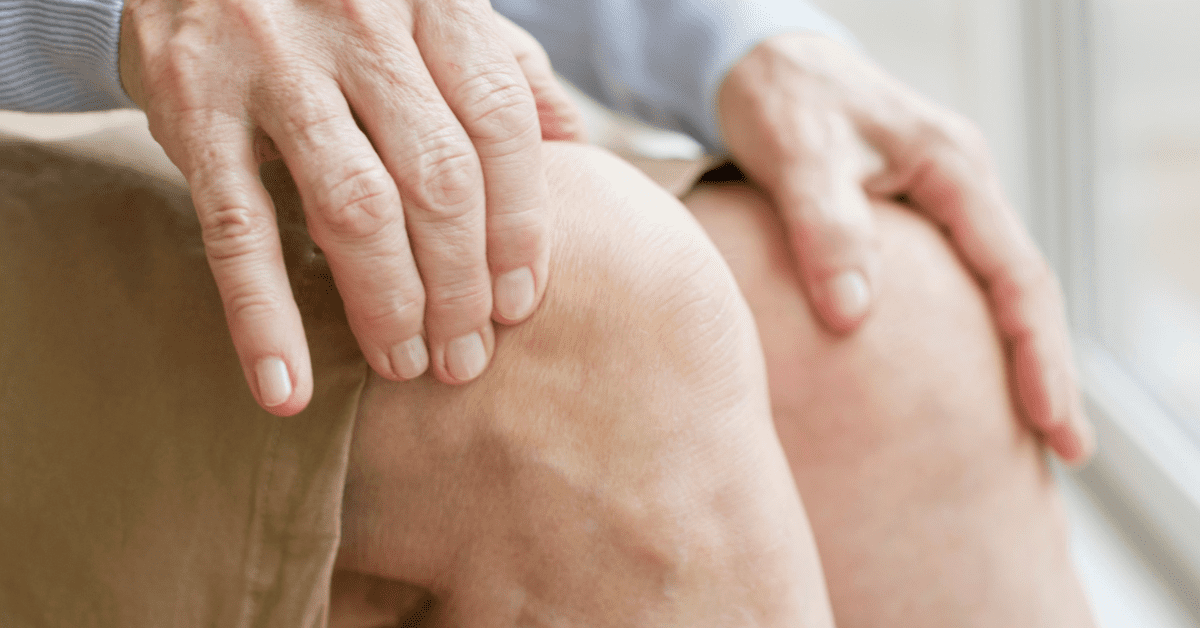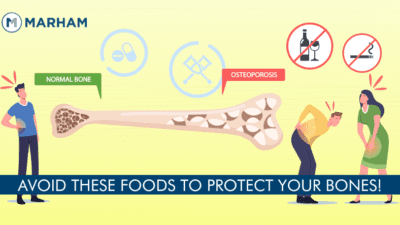You may be wondering what foods to avoid with osteopenia if you have this condition. It means that your bones are beginning to thin. This puts you at risk for osteoporosis, which is when your bones are so thin that they can break.
While there is no one-size-fits-all diet for osteopenia, there are some general guidelines that can help you make choices that will support your bone health. Check them out below.
What is Osteopenia?
Osteopenia is a condition in which bone mineral density is lower than normal. It’s not as severe as osteoporosis, but it’s still a cause for concern.
It’s often considered a precursor to osteoporosis, a more serious condition that can lead to fractures. Osteopenia is fairly common, especially in women over the age of 50.
“Currently, it has been estimated that more than 200 million people are suffering from osteoporosis. According to recent statistics from the International Osteoporosis Foundation, worldwide, 1 in 3 women over the age of 50 years and 1 in 5 men will experience osteoporotic fractures in their lifetime.” –An overview and management of osteoporosis
There are a number of different causes of osteopenia, including aging, hormone deficiencies, and certain medications. Treatment typically focuses on preventing further bone loss and increasing bone density. This can be done through lifestyle changes, dietary changes, and exercise.
Symptoms of Osteopenia:
Some of the common symptoms of osteopenia are:
- Bone loss: One of the most common symptoms of osteopenia is bone loss. You may notice that your bones are becoming thinner and more brittle over time. This can lead to an increased risk of fractures and breaks.
- Joint pain: Joint pain is another common symptom of osteopenia. You may notice that your joints are becoming increasingly sore and tender. This is due to the loss of bone density in the joints, which can lead to inflammation and pain.
- Muscle weakness: Muscle weakness is another common symptom of osteopenia. This is because the loss of bone density can lead to a decrease in muscle mass. This can make it difficult to perform everyday tasks, such as lifting groceries or completing household chores.
- Fatigue: Fatigue is another symptom of osteopenia. This is because of muscle weakness and joint pain.


If you have any of these symptoms, it is important to consult a doctor. Click here to consult online an Orthopedic Doctor today via Marham!
What Foods to Avoid with Osteopenia?
In addition to lifestyle changes and medication, your diet can also play a role in managing osteopenia. So, what foods to avoid with osteopenia? If you have this condition, here are the seven foods that you must avoid to prevent further bone damage:
1. Salt
Doctors advise people with osteopenia to limit their salt intake because eating foods high in salt can remove calcium from your bones.
Studies have shown that eating salty meals can make you more prone to developing osteopenia. Research published in the journal Osteoporosis International discovered this link for postmenopausal women as well.
You can take 2,300 mg of sodium is enough per day to keep your bones healthy. In order to avoid excess salt intake, avoid eating anything that comes out of a pack. For example, chips, biscuits, and other processed foods.
2. Caffeine
Caffeine intake has been linked to reduced bone density in postmenopausal women, according to research. Experts say that caffeine can destroy your bones by taking calcium out of them.
According to Nutritionists, for every 100 milligrams of caffeine consumed, approximately 6 milligrams of calcium are lost.
To avoid osteoporosis, consume decaf coffees and teas and restrict your intake of sweet foods, especially those containing caffeine, such as chocolate.
3. Inflammatory Foods
Food like tomatoes, mushrooms, peppers, white potatoes, and eggplant might promote bone inflammation and osteoporosis. You should not completely avoid these foods as they also include other beneficial vitamins and minerals. Just limit their intake.
You may consume these foods and still promote strong bones as long as you make sure to get adequate calcium, which is 1,000 to 1,200 milligrams per day.
Also, read about 7 Foods That Can Strengthen Bones At Any Age
4. Sugary foods
Eating foods high in sugar can not only increase your chances of getting obese but can also destroy your bone health. It has been found that people who consume extra added sugar and don’t get enough nutrient-rich foods are at high risk of bone problems.
So, you must satisfy your sweet appetite with fruits like prunes, cranberries, and others that are high in antioxidants, which are beneficial elements that support bone health, for the best osteoporosis diet.
5. Alcohol
It’s crucial to restrict your alcohol consumption because excessive use leads to bone loss. Overdrinking, tobacco use, and low physical activity are some of the common risk factors for osteopenia in adults.
6. Soft Drinks
Research shows that caffeinated soft drinks, especially colas, may lead to bone loss. Scientists are still trying to figure out why and how drinking soda might harm your bones. Some believe that phosphorus, a major element in sodas, causes bone weakness over time.
Whatever the reason, sugary, caffeinated drinks don’t provide any important nutrients and may be harmful to your health. So, it is best to avoid them.
7. Processed meats
The body releases calcium from the bones and dissolves it in order to deal with the high levels of sulfur-containing amino acids found in meat protein.
Therefore, it is advised to reduce your consumption of red meat and increase your intake of nuts and beans if you have osteoporosis since you need all the calcium you can get.
See, How To Protect Yourself From Osteoporosis Bone Fractures?
What is a Healthy Osteopenia Diet?
“The prevalence of osteoporosis in Pakistan is expected to rise in the coming years with an estimated prevalence of 11.3 million in 2020, and 12.9 million in 2050,” says research from the JPMA.
If you have been diagnosed with osteopenia and want to avoid getting osteoporosis, you may be wondering what you can do to improve your condition.
One important thing you can do is to make sure you are following a healthy diet. A healthy diet for osteopenia should include plenty of calcium-rich foods, as well as other nutrients that are essential for bone health.
Some good examples of calcium-rich foods include dairy products, dark leafy greens, and certain types of fish. Other nutrients that are important for bone health include vitamin D, vitamin K, and magnesium.
You can get these nutrients from a variety of foods, including fatty fish, eggs, and dark leafy greens. In addition to eating a healthy diet, you should also make sure you are getting enough exercise. Exercise helps to strengthen bones and can also help to improve your overall health. If you are
The Bottom Line
Making these dietary changes can be tough, but your bones will s in low bone density and a higher risk for fractures. While it is not as severe as osteoporosis, it is still a serious condition that should be treated with care.
There are many risk factors for osteopenia, such as a family history of the condition, a sedentary lifestyle, and certain medical conditions.
If you think you might have osteopenia, it’s important to talk to your doctor. They can help you make a treatment plan and monitor your bone health.
Can’t Find the App?
| Android | IOS |
|---|---|
  |
  |
FAQs
What food is good for osteopenia?
Some foods that are good for osteopenia are fish such as salmon, cheese, egg yolks, fortified breakfast cereals, juices, milk products, yogurt, and margarine.
What triggers osteopenia?
Osteopenia can be triggered by a number of factors, such as medical diseases like hyperthyroidism or drugs used for cancer, heartburn, high blood pressure, and seizure. It is also commonly caused after menopause in women.
Can you go from osteopenia to normal?
Exercise, a healthy diet, and medication are all options for treating osteopenia. But some medical professionals are becoming more cautious about overmedicating patients with osteopenia. Since the risk of fracture is already minimal, evidence indicates that taking medicine might not significantly lower it.

